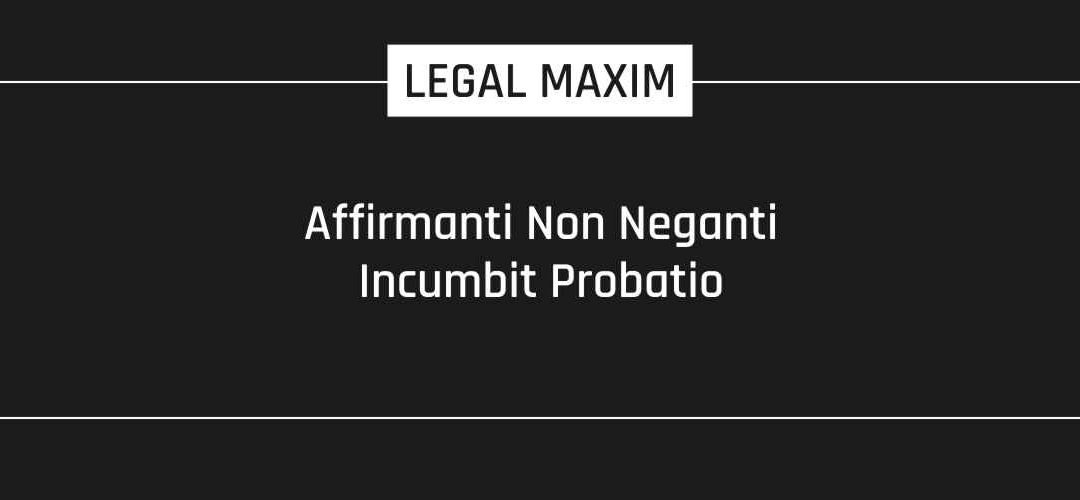LITERAL MEANING
The burden of proof lies upon him who asserts and not upon him who denies
ORIGIN
Latin
EXPLANATION
Generally, it is the duty of the party who is asserting something, to prove the claims. The party affirming has to produce sufficient evidence in order to avoid the dismissal of the case. However, in criminal cases, the burden of proof is on the prosecutor to prove the guilt of the accused beyond a reasonable doubt. Nonetheless, in civil matters, the plaintiff needs to submit necessary facts and evidence as the burden of proof is on him and not on the defendant.
However, in some cases, the burden of proof might shift on the defendant, but this circumstance arises only when the defendant raises his defense against the plaintiff’s claims.
ILLUSTRATION
As the hustle created after the commencement of the trial, the Court issued affirmanti non neganti incumbit probatio, and ordered the plaintiff to submit the facts and evidence of the case.
CASE LAWS
In the case of Iniyan Sampath V. Sridharan, the major consideration was that whether there is any evidence available on record to prove the bona fide requirement of the landlord in respect of the demised premises. For this, the Madras High Court pointed this maxim and stated, “Affirmanti, non neganti, incumbit probatio: The burden of proof lies upon him who asserts and not upon him who denies.”
Further, in the case of Kasthuri Ammal V. G Sampath, the Madras High Court again highlighted the importance of this maxim and stated that, “I would like to fumigate my mind with the following maxim – Affirmanti non neganti incumbit probation – The burden of proof lies upon him who asserts and not upon him who denies.”
This Maxim has been written and submitted by Ms. Vishakha Bhardwaj during her course of internship at B&B Associates LLP. Ms. Vishakha is a third-year law student at the Army Institute of Law, Mohali.
